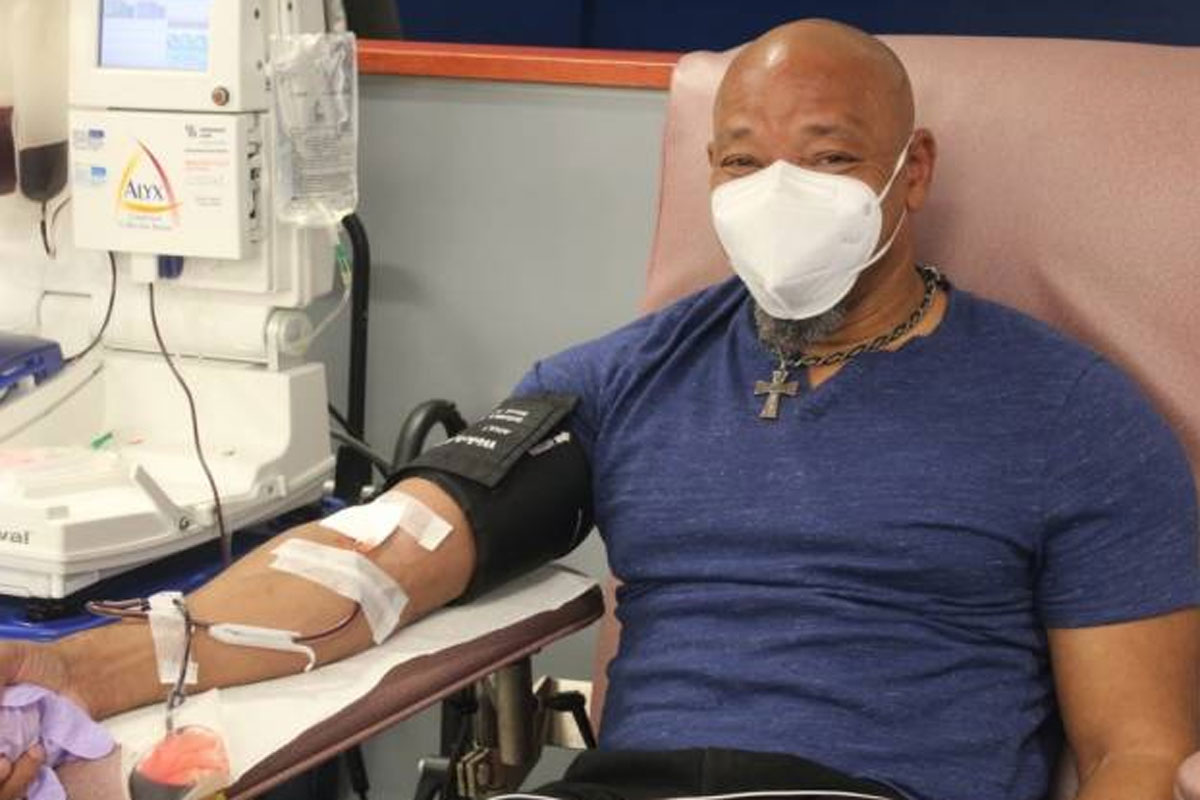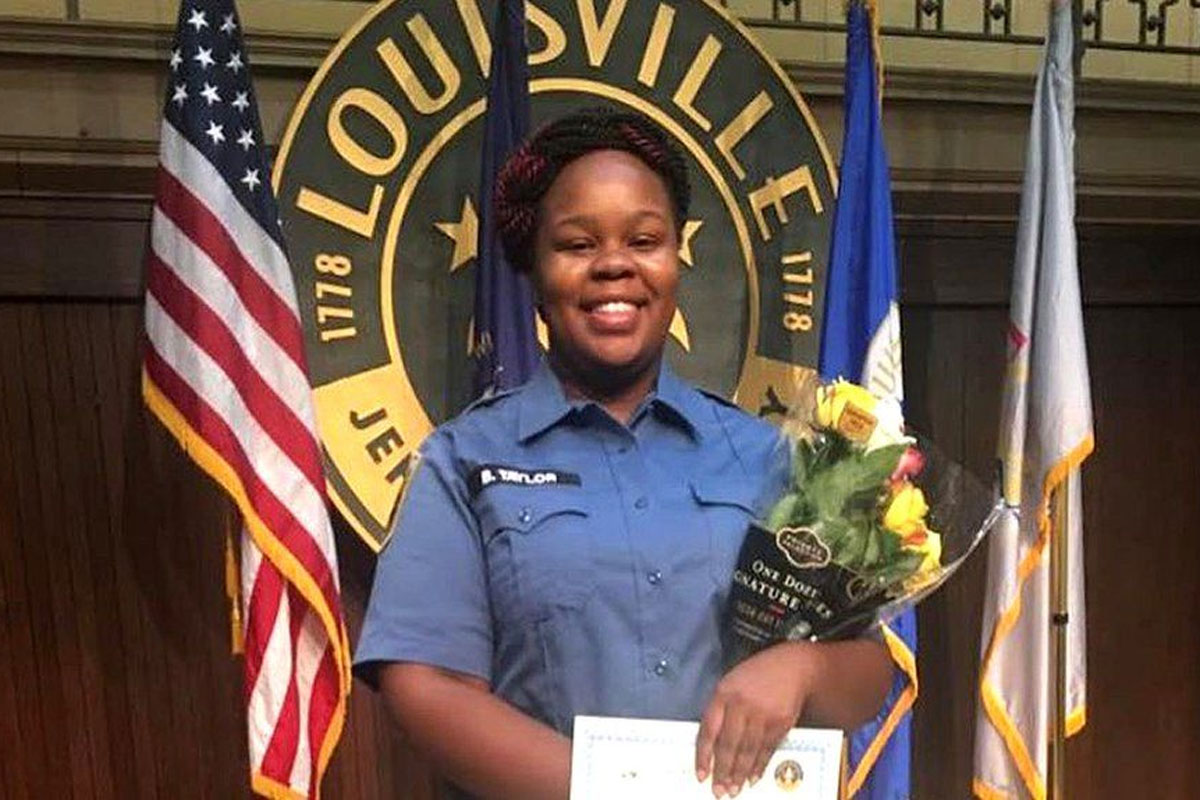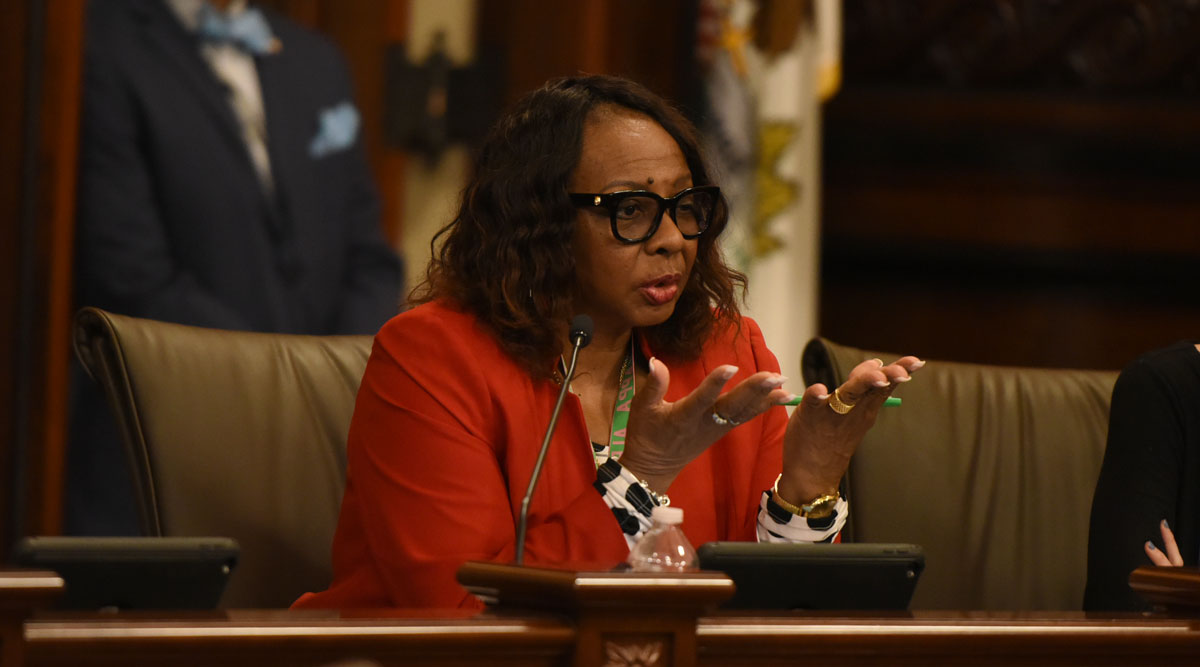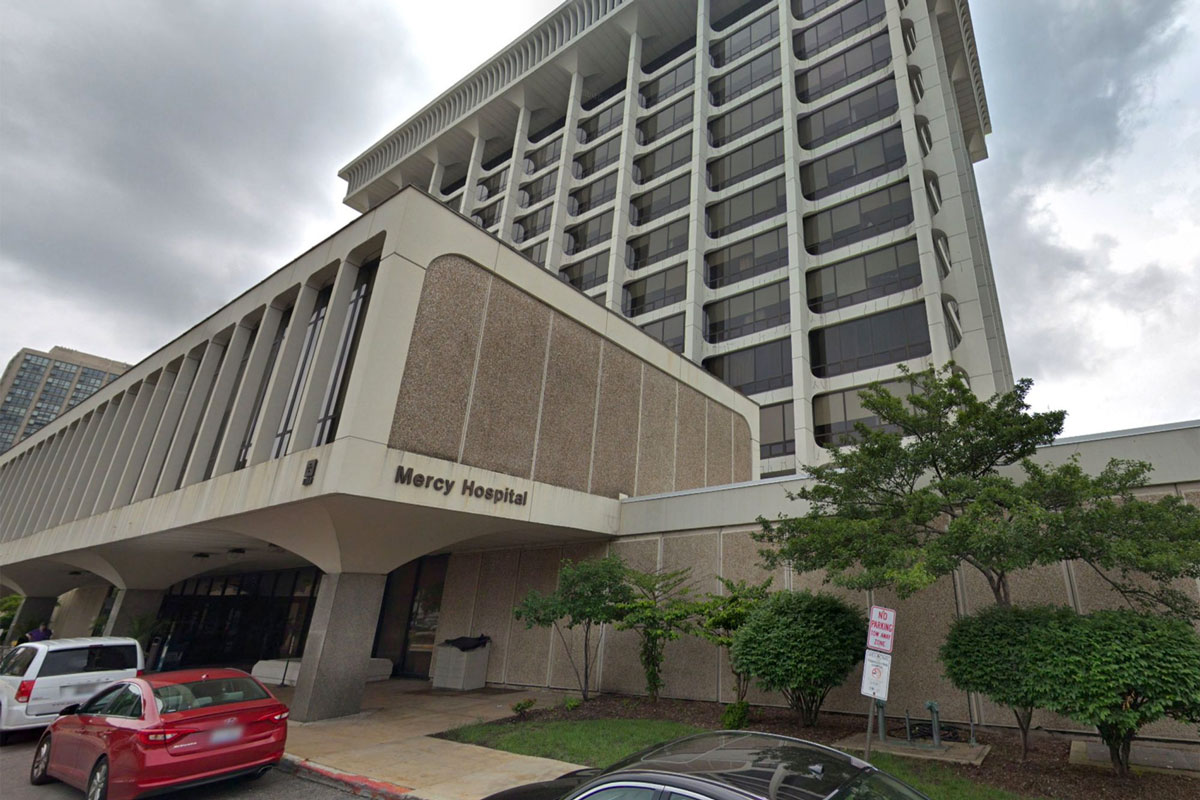- Details
- Category: Senator Mattie Hunter News
 CHICAGO – To discuss the structural challenges Black entrepreneurs face in commerce, Senate Financial Institutions Committee Chair Jacqueline Collins and Senate Executive Committee Chair Mattie Hunter will lead a joint Senate committee hearing today.
CHICAGO – To discuss the structural challenges Black entrepreneurs face in commerce, Senate Financial Institutions Committee Chair Jacqueline Collins and Senate Executive Committee Chair Mattie Hunter will lead a joint Senate committee hearing today.
“Our goal in this ongoing series of hearings is to honestly and completely frame the problem of racial discrimination in Illinois as the basis for the Illinois Legislative Black Caucus’ legislative agenda,” said Collins (D-Chicago). “This must include a look at what challenges Black-owned enterprises face.”
- Details
- Category: Senator Mattie Hunter News
 CHICAGO – To help remedy Chicago's dire blood shortage caused by COVID-19, State Senator Mattie Hunter (D-Chicago) and Rev. Byron Brazier of Apostolic Church of God are partnering to hold a community blood drive Friday. African-American blood donors are especially needed to help patients battling sickle cell disease. Blood banks have seen donations by African-Americans drop by more than 50% since the COVID-19 pandemic began.
CHICAGO – To help remedy Chicago's dire blood shortage caused by COVID-19, State Senator Mattie Hunter (D-Chicago) and Rev. Byron Brazier of Apostolic Church of God are partnering to hold a community blood drive Friday. African-American blood donors are especially needed to help patients battling sickle cell disease. Blood banks have seen donations by African-Americans drop by more than 50% since the COVID-19 pandemic began.
Those who are interested in being part of this community solution are asked to add their name here and make an appointment to donate blood at vitalant.org using the group code F932. Even one donation could save the life of a community member.
What: Blood Drive
Who: State Senator Mattie Hunter, Rev. Byron Brazier, and other community officials
When: Friday, Oct. 2 from noon-5 p.m.
Where: Apostolic Church of God, 6320 S. Dorchester, Chicago, IL 60637
- Details
- Category: Senator Mattie Hunter News
 CHICAGO — State Senator Mattie Hunter (D-Chicago) issued the following statement after a Kentucky grand jury declined to indict any of the officers involved in the killing of Breonna Taylor, who was slain during a police raid in March. One former officer was indicted for wanton endangerment for firing into neighboring apartments during the botched raid.
CHICAGO — State Senator Mattie Hunter (D-Chicago) issued the following statement after a Kentucky grand jury declined to indict any of the officers involved in the killing of Breonna Taylor, who was slain during a police raid in March. One former officer was indicted for wanton endangerment for firing into neighboring apartments during the botched raid.
“Though a former officer was indicted, it was not for the murder of Breonna Taylor. It was for the endangerment of other members of her community. I’m shocked and dismayed that no one is being held accountable for Breonna’s murder.
“The message Kentucky officials are sending is simple: Breonna Taylor’s life did not matter to them. There is no criminal justice for a Black woman who was sleeping in her own bed as the police raided her home, yet her family received a settlement for her wrongful death. Where is the accountability?
“I get tired of saying this, but I won’t stop until it rings true in the ears of the people who hold the power in these decisions: Black lives matter. Black lives deserve justice. Black lives deserve better from this country, and I will not stop working to make this country a safer, more equitable place for all Americans.”
- Details
- Category: Senator Mattie Hunter News
 CHICAGO — During the first wave of Business Interruption Grants Chicago businesses received more than $3 million in financial assistance. The second wave of grants opened Thursday, and State Senator Mattie Hunter (D-Chicago) is urging eligible businesses to apply.
CHICAGO — During the first wave of Business Interruption Grants Chicago businesses received more than $3 million in financial assistance. The second wave of grants opened Thursday, and State Senator Mattie Hunter (D-Chicago) is urging eligible businesses to apply.
“I was encouraged by the results of the first wave of BIG grants, and I’m hoping that other Southside businesses can receive similar assistance this time around,” Hunter said. “Any business that has faced financial hardships stemming from the pandemic should apply as soon as possible.”
Grants in the first round ranged from $10,000 to $20,000 to assist businesses with expenses like payroll costs, rent, utilities, equipment, and other possible unexpected costs to relieve the effects of the pandemic.
The second wave of grants will aid businesses such as movie theatres, performing arts venues, and concert venues as well as other for-profit and non-profit businesses with a total of $220 million in allocated funds to help them push through these hard times.
To ensure funds are distributed across the state and across business types, $60 million has been specifically allocated for heavily distressed industries, including indoor recreation facilities and amusement parks.
Another $70 million has been set aside for businesses located in disproportionately impacted areas, or low-income areas that have experienced high rates of COVID-19, including businesses located in the 60616 ZIP code. A full list of eligible ZIP codes can be found here.
Eligible businesses should apply as soon as possible on the Illinois Department of Commerce and Economic Opportunity’s website.
- Details
- Category: Senator Mattie Hunter News
 CHICAGO — Illinois is seeing a surge in opioid-related deaths in 2020, already doubling last year’s amounts in Cook County. The state received more than $36 million in federal funding in order to fight the opioid crisis Friday, and State Senator Mattie Hunter (D-Chicago) is hopeful these new funds will help equip Illinoisans with the resources to fight substance abuse.
CHICAGO — Illinois is seeing a surge in opioid-related deaths in 2020, already doubling last year’s amounts in Cook County. The state received more than $36 million in federal funding in order to fight the opioid crisis Friday, and State Senator Mattie Hunter (D-Chicago) is hopeful these new funds will help equip Illinoisans with the resources to fight substance abuse.
“Many people don’t understand that drug abuse and drug addictions are a disease,” Hunter said. “It’s important to take all the necessary steps to prevent addiction early. There are people battling the global health crisis, racism, and opioid addictions all at the same time. Now more than ever, people need help fighting the disease of addiction, just as they would need help fighting cancer or any other disease.”
The funding awarded by the Substance Abuse and Mental Health Services Administration will expand abuse prevention and response initiatives. Further, critical services will be implemented to help people with opioid use disorders, assist those on a path to recovery, and provide lifesaving medication and support across the state.
In Cook County alone, approximately two-thirds of opioid overdose deaths have been Black and Latino people — the same groups of people dying most from COVID-19.
“I am working with city health managers to establish a Southside Opioid Committee,” Hunter said. “We meet monthly and are inviting alcohol and drug programs to get involved. We hope to apply for federal funding to operate the Southside initiative, as they are doing on the Westside.”
The following initiatives will receive funds:
- Expanded access to Medication Assisted Recovery services for people with opioid use disorders, including those in the criminal justice system;
• Hospital screenings and linkage to community treatment programs for their patients; supportive housing and digital resources for people in recovery from opioid use disorder;
• Access to medication-assisted recovery for patients at federally qualified health centers;
• Recovery support services for pregnant and postpartum women with opioid use disorders; mentoring and coaching for medical professionals prescribing medications for opioid use disorder; and a toll-free Helpline for opioids and other substances, and
• Expanded treatment of people with stimulant use disorder, in response to rising rates of methamphetamine and cocaine use.
People experiencing problems with substance use disorder should call the state’s Helpline for Opioids and other Substances at 1-833-2FINDHELP (1-833-234-6343), text “HELP” to 833234 or visit HelplineIL.org.
- Details
- Category: Senator Mattie Hunter News
 SPRINGFIELD — After a Senate hearing Thursday about transparency and equity at the Illinois Department of Transportation, IDOT and other members of the Mid-America Association of State Transportation Agencies voted to establish a diversity committee. State Senator Mattie Hunter (D-Chicago) praised the decision in the following statement:
SPRINGFIELD — After a Senate hearing Thursday about transparency and equity at the Illinois Department of Transportation, IDOT and other members of the Mid-America Association of State Transportation Agencies voted to establish a diversity committee. State Senator Mattie Hunter (D-Chicago) praised the decision in the following statement:
“For years, we’ve heard serious complaints about acts of discrimination at IDOT. Thursday, we gave Secretary Omer Osman the opportunity to respond to these allegations, and I’m happy to see that he’s taken them seriously.
“The establishment of this diversity committee is a start, but it will not be enough to fix the issues on its own. I’m looking forward to seeing policies that result in us hearing less and less discrimination complaints.
“I hope to see the organization implement more opportunities for people of color statewide, both in employment and mobility.”
- Details
- Category: Senator Mattie Hunter News
 CHICAGO — State Senator Mattie Hunter (D-Chicago) is joining advocate groups and Alderman Jeanette Taylor in calls to make the childhood home of Emmett Till a landmark on the 65th anniversary of his death.
CHICAGO — State Senator Mattie Hunter (D-Chicago) is joining advocate groups and Alderman Jeanette Taylor in calls to make the childhood home of Emmett Till a landmark on the 65th anniversary of his death.
“Emmett’s unjust death parallels many today – George Floyd, Ahmaud Arbery, Breonna Taylor, and too many others to count,” Hunter said. “Emmett received no justice for being murdered senselessly, just as others we’ve seen this year that are still waiting for justice. This is why we proclaim, ‘Black Lives Matter’ – because the justice system hasn’t shown us that they do.”
Till was a 14-year-old boy from Chicago, visiting family in Mississippi when he was brutally beaten and killed for allegedly flirting with a white woman on Aug. 28, 1955.
When his body was found days later, it was so disfigured he could only be identified by an initialed ring. His mother’s decision to hold an open casket funeral changed the pace of the Civil Rights Movement, exposing the country to the horrors of racism.
Still, no justice was served for Till. The all-white jury debated for less than an hour before deciding Till’s killers were not guilty. Years later, it was revealed that the woman lied about Till coming on to her.
“We are tired, and we have been for generations. When will it end?” Hunter asked. “The first step to eradicating racism is to be educated about it. If we make Emmett Till’s home a landmark, and share this grave history, we can raise awareness in the hopes that the generation to come will have no more Emmett Tills.”
Last year, the Woodlawn residence where Till grew up was bought by BMW properties, which buys distressed property and sells them as turn-key investments to investors seeking passive rental income. If the home was made an official landmark of the city, it would be prevented from possible demolition or renovation that would dampen its architectural history.
- Details
- Category: Senator Mattie Hunter News
 CHICAGO – Mercy Hospital announced plans to close by May 2021 last month, and State Senator Mattie Hunter (D-Chicago) is advocating against it, saying Mercy should remain open.
CHICAGO – Mercy Hospital announced plans to close by May 2021 last month, and State Senator Mattie Hunter (D-Chicago) is advocating against it, saying Mercy should remain open.
“This decision could devastate our community, which is already struggling in the middle of this global pandemic,” Hunter said. “Mercy owners requested hundreds of millions of dollars just to close it down, and turn it into a clinic. But we don’t need a clinic, we need a hospital, which has the resources necessary to save lives in times of urgency and in times of severe illness.”
In March, Mercy announced plans to merge South Shore Hospital, Advocate Trinity Hospital and St. Bernard Hospital, but failed to gain the financial support necessary to do so.
More Articles …
Page 16 of 18













 © 2026 Illinois Senate Democratic Caucus
© 2026 Illinois Senate Democratic Caucus